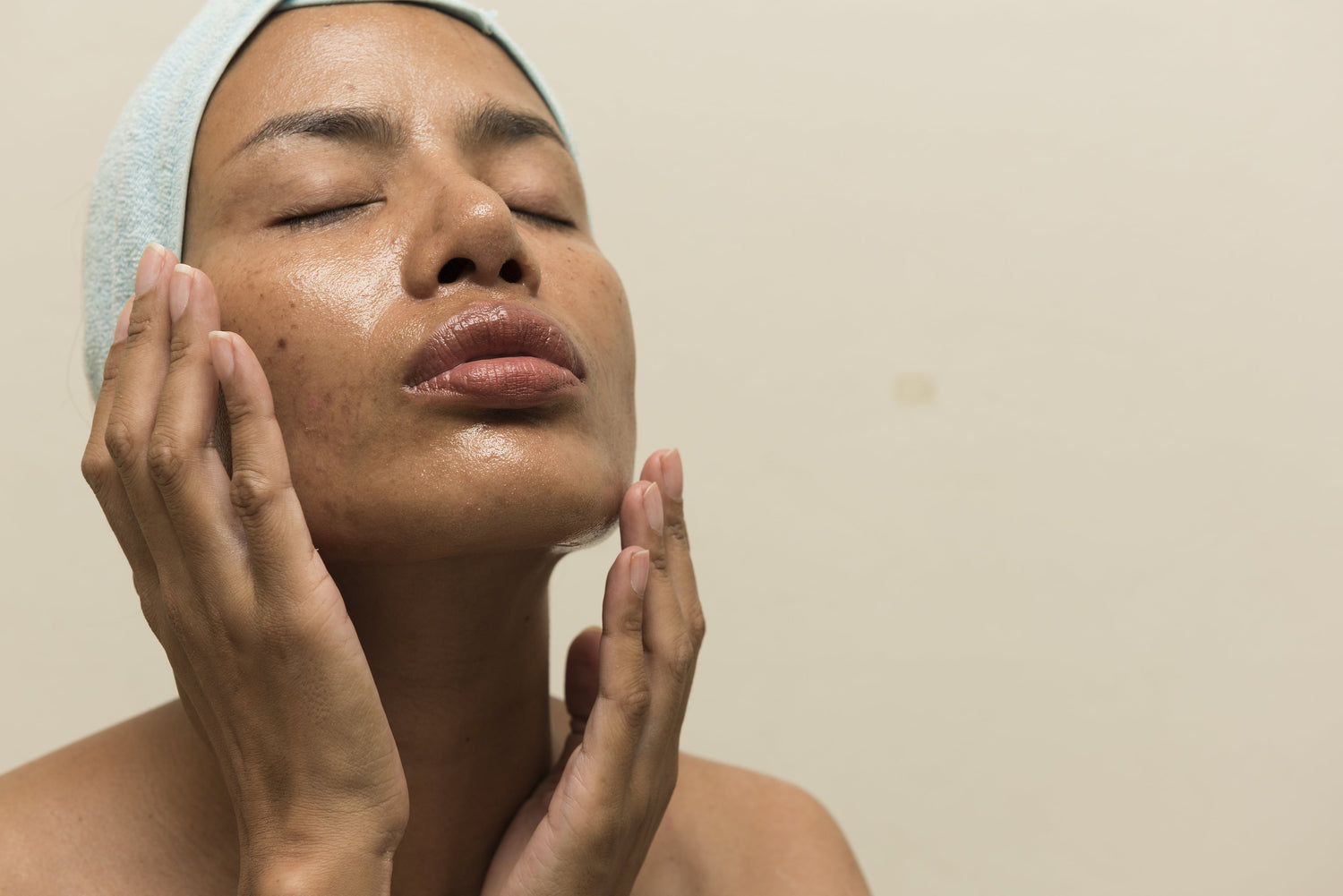Skin inflammation is implicated as a cause of many common skin complaints. Got an acne breakout? Inflammation plays a role. Prone to redness? Thank inflammation. Seeing an increase in skin hyperpigmentation? You guessed it, inflammation.
What is Inflammation?
While inflammation gets a bad rap, it is actually an important protective function of the immune system. When the body detects the presence of a harmful stimulus or experiences a trigger event, blood vessels widen to allow for white blood cells to rush to the site where the perceived risk is occurring, where they release anti-inflammatory chemicals. This increased blood flow is why you find your skin become red and puffy when you cut yourself or get an infection. It's a sign the body is doing what it's supposed to do to defend itself. After the risk is averted, inflammation subsides and the skin goes back to normal function. However, in its wake, it can often leave negative tell-tale signs that it was there. (All the fun stuff mentioned above.) As Lexli founder Dr. Ahmed Abdullah likes to explain it, "inflammation is like the fire department that arrives to save your house. It puts out the fire and saves the structure but you're left with collateral damage in the process."
Chronic Inflammation
Problems are worsened when the skin's inflammatory response is overly sensitive or overreactive. For example, inflammation may occur as an allergic reaction to certain skincare ingredients, causing it to become red, itchy and even bumpy (a condition called "seborrheic dermatitis").
In extreme cases, skin inflammation is prolonged and constant, as is the case in conditions like psoriasis, rosacea and eczema. This chronic inflammation, the cause of which researchers are only beginning to understand, can lead to tissue damage and cause skin to function abnormally. Because of the long-term risk to the skin, inflammatory skin conditions like these are best treated under the guidance of a dermatologist.
Causes of Inflammation and Ways to Keep It In Check
The factors that encourage skin inflammation can happen both inside and outside of the body. While some are beyond our control, there is a lot we can do to minimize inflammation. Consider the following documented causes of inflammation:
Internal Factors
- Diets high in sugars, refined starches and saturated and trans-fats (processed foods) have been reliably linked to inflammation in numerous studies.
- Researchers believe that an increase in psychological stress is connected to the rise in rates of inflammation-related medical conditions.
- Genetics and certain medical conditions may make someone more prone to inflammation.
What can you do to minimize internal factors?
- Maintain a Healthy Diet: eating a diet that incorporates lots of fruits and vegetables while minimizing consumption of sugary, processed foods is especially beneficial to the skin. Anti-inflammatory foods, like fruits and vegetables, offer antioxidants that help the skin to fight free radical damage, ultimately working to keep unneeded inflammation to a minimum.
- Incorporate Stress-Relief Practices: A regular yoga or meditation practice can do wonders to calm the body, thereby helping to reduce inflammation. If these "zen" practices aren't your thing, consider implementing an exercise routine, which also helps to reduce stress.
- Get a Regular Checkup: Medical conditions that are left unchecked may be contributing to inflammation and leaving their mark on your skin. With medical intervention, the inflammation response encouraged by certain conditions can be controlled.
External Factors
- Negative skincare practices, such as over-aggressive exfoliation, skipping facial cleansing, and using abrasive products or products with harmful ingredients (or those that trigger an allergic reaction in some individuals), can all contribute to skin inflammation.
- Dry skin, caused by genetics or environment, is a magnet for inflammation.
- Exposure to bacteria or viruses is the classic scenario in which inflammation is activated in the body.
- While UV exposure is known to cause sunburn, which is a well known cause of inflammation, some individuals have photosensitivity, which causes their skin to become red and itchy when exposed to sunlight.
- Exposure of the body to extreme temperatures - hot or cold - can cause some individuals to experience inflamed skin.
What can you do to minimize external factors?
- Implement a Consistent Skin Care Routine: while the products you should use will depend on your skin type and characteristics, nearly everyone can benefit from regular cleansing, use of a hydrating moisturizer and occasional exfoliation - the latter when done properly.
- Treat Your Skin With Soothing, Anti-Inflammatory Ingredients: While all skin types benefit from the use of anti-inflammatory skin care ingredients, those prone to inflammation will see a noticeable impact. Our top pick is aloe vera, which is clinically proven to calm inflammation. In fact, the anti-inflammatory properties of aloe are so pronounced that Dr. Abdullah applies the same aloe used as the base ingredient of Lexli products to his patients' skin following surgery to calm and nurture skin tissue. Other beneficial anti-inflammatory ingredients include chamomile, allantoin and green tea, among others.
- Protect Your Skin from UV Exposure: The benefits of sunscreen are commonly accepted but often lagging in practice. Ensure you're applying enough sunscreen daily and at the correct SPF, while also employing other sun-protection habits, like wearing a hat and covering exposed skin.
The Takeaway
Nearly all of us can control the degree of skin inflammation we experience by changing habits and implementing new ones. In doing so, we can experience a reduction in redness, breakouts, hyperpigmentation and other unwanted skin characteristics while improving our skin's (and body's) overall health. When inflammation is chronic or severe, however, seeking the opinion of a physician is the best course of action, as prescription intervention may be necessary.





